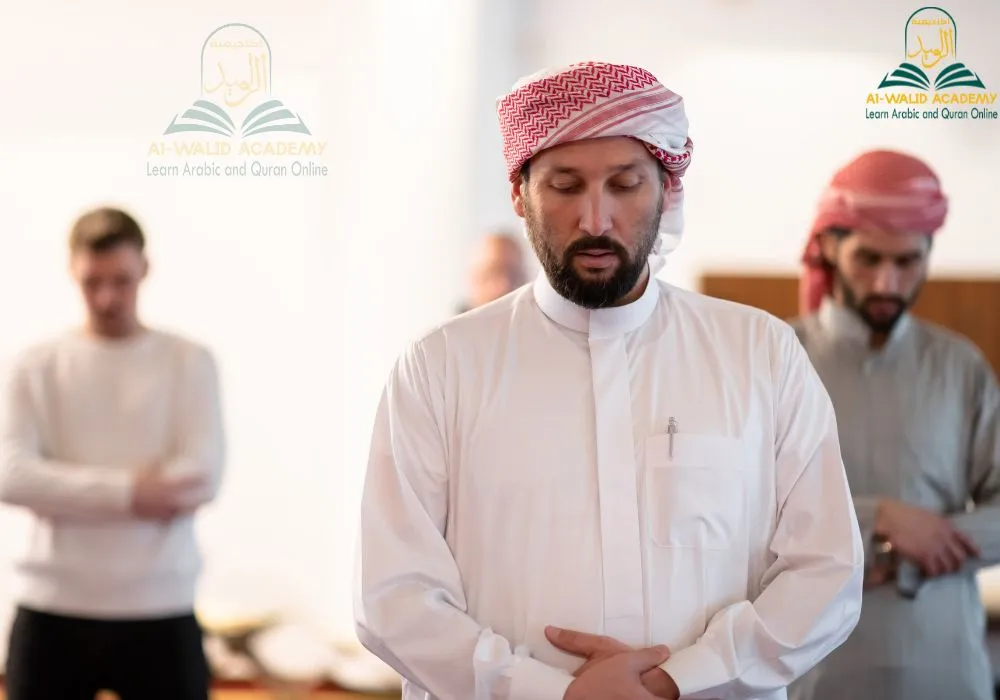Open Doors to a World of Possibilities: Your Comprehensive Guide to Speaking Arabic
In today’s globalized world, Arabic has become a language of immense value, unlocking doors to personal, professional, and cultural enrichment. Our comprehensive guide, “Teach Me How to Speak Arabic,” provides a structured and engaging pathway to Arabic fluency. Whether you’re a beginner or have some prior knowledge, our tailored approach will equip you with the essential skills and strategies to confidently communicate in Arabic, opening up a world of exciting possibilities.
What are the basic Arabic words?
Embarking on the journey to learn Arabic, a language steeped in rich history and cultural significance, can be an exciting yet daunting endeavor. As you navigate the intricacies of Arabic grammar and pronunciation, it’s essential to establish a solid foundation of basic vocabulary. This guide, part of our comprehensive “Teach Me How to Speak Arabic” program, will introduce you to some of the most commonly used Arabic words, providing you with the building blocks for effective communication.
1. Greetings and Pleasantries
-
Marhabaan: (مَرْحَباً) – A versatile greeting that can be used in various situations, from casual encounters to formal introductions.
-
Shukran: (شُكْراً) – Expressing gratitude, “thank you” is a fundamental word to master.
-
Afwan: (أَفْوَان) – The polite response to “thank you,” meaning “you’re welcome.”
-
Min fadlik: (مِنْ فَضْلِكَ) – A courteous request, “please” is essential for everyday interactions.
-
Ma’a as-salaama: (مَعَ السَّلَامَةِ) – A farewell expression, “goodbye” or “take care,” conveys well wishes.
2. Essential Nouns
-
Naam: (اِسْمٌ) – Meaning “name,” this word is crucial for introducing yourself and others.
-
Umur: (عُمْرٌ) – “Age” is a common topic of conversation, so knowing this word is handy.
-
Bayt: (بَيْتٌ) – Meaning “house” or “home,” this word is essential for discussing living arrangements.
-
A’ila: (عَائِلَةٌ) – “Family” is a fundamental concept in Arab culture, so this word is important to know.
-
Waqt: (وَقْتٌ) – “Time” is a crucial aspect of daily life, so mastering this word is essential.
3. Verbs for Everyday Interactions
-
A’ata: (أَعْطَى) – Meaning “to give,” this verb is used in various situations, from sharing gifts to offering assistance.
-
Fahim: (فَهِمَ) – “To understand” is a crucial verb for comprehending conversations and instructions.
-
Takallam: (تَكَلَّمَ) – “To speak” is essential for verbal communication, the foundation of language learning.
-
S’aal: (سَأَلَ) – “To ask” is a fundamental verb for seeking information and making requests.
-
Raah: (رَاحَ) – Meaning “to go” or “to leave,” this verb is used for expressing destinations and movements.
4. Numbers for Everyday Use
-
Wahid: (وَاحِدٌ) – “One” is the most basic number, essential for counting and quantifying.
-
Ithnaan: (اثْنَانِ) – “Two” is a common number used in everyday conversations.
-
Thalaathah: (ثَلاَثَةٌ) – “Three” is another frequently used number in various contexts.
-
Arba’ah: (أَرْبَعَةٌ) – “Four” is important for counting and sequencing.
-
Khamsah: (خَمْسَةٌ) – “Five” completes the essential set of single-digit numbers.
5. Pronouns for Personal Interactions
-
Ana: (أَنَا) – “I” is the first-person singular pronoun, crucial for self-identification.
-
Anta: (أَنْتَ) – “You” (masculine singular) is used for addressing male individuals.
-
Anti: (أَنْتِ) – “You” (feminine singular) is used for addressing female individuals.
-
Nahnu: (نَحْنُ) – “We” is the first-person plural pronoun, used for referring to oneself and others.
-
Hum: (هُمْ) – “They” is the third-person plural pronoun, used for referring to a group of people.
These basic Arabic words and phrases form the foundation for effective communication in everyday situations. As you continue your language learning journey with our “Teach Me How to Speak Arabic” program, you’ll expand your vocabulary and gain the confidence to navigate more complex conversations and interactions. Remember, consistent practice Take alook to :LEARNING ARABIC AS AN ENGLISH SPEAKER
Teach me How to Speak Arabi
Embark on Your Arabic Learning Journey with Confidence Our comprehensive guide, “Teach Me How to Speak Arabic,” provides a structured and engaging pathway to Arabic fluency. Whether you’re an absolute beginner or have some prior knowledge, our tailored approach will equip you with the essential skills and strategies to confidently communicate in Arabic, opening up a world of exciting possibilities.
1. Laying the Foundations: Essential Arabic Vocabulary
As you embark on your Arabic learning journey, it’s crucial to establish a solid foundation of basic vocabulary. This will enable you to engage in simple conversations, express your needs, and navigate everyday situations with ease.
2. Mastering the Arabic Alphabet: The Gateway to Reading and Writing
The Arabic script, with its distinctive characters and flowing calligraphy, is an integral part of the language’s beauty and heritage. Learning the Arabic alphabet will empower you to read and write Arabic, opening up a world of literature, news, and cultural insights.
3. Unveiling the Secrets of Arabic Grammar: The Rules of Effective Communication
Arabic grammar, with its unique structure and nuances, provides the framework for constructing accurate and meaningful sentences. Understanding Arabic grammar will enable you to express yourself with clarity and precision, enhancing your communication skills.
4. Embracing the Power of Pronunciation: Mastering the Sounds of Arabic
Arabic pronunciation, with its distinctive sounds and rhythmic patterns, is essential for clear and comprehensible communication. Mastering Arabic pronunciation will allow you to speak with confidence and fluency, enhancing your interactions with native speakers.
5. Immerse Yourself in the Language: Embracing Arabic Culture
Language learning is not just about acquiring vocabulary and grammar rules; it’s about immersing yourself in the culture that gave birth to the language. By exploring Arabic music, literature, art, and traditions, you’ll gain a deeper understanding of the language and its nuances.
6. Seek Guidance and Support: Finding Your Arabic Learning Community
Surrounding yourself with Arabic learners and native speakers will provide invaluable support and encouragement on your language learning journey. Join Arabic language classes, online forums, or conversation groups to connect with fellow language enthusiasts and enhance your learning experience.
7. Embrace Patience and Consistency: The Keys to Fluency
Learning a new language takes time, dedication, and consistent effort. Don’t be discouraged by setbacks or challenges. Embrace patience, celebrate your progress, and maintain a consistent practice routine to achieve your Arabic fluency goals.
8. Utilize Technology and Resources: Enhancing Your Learning
Leverage the power of technology and online resources to supplement your Arabic learning journey. Utilize language learning apps, watch Arabic movies and TV shows, and listen to Arabic music to enhance your vocabulary, pronunciation, and cultural understanding.
9. Embrace Opportunities to Practice: Speaking, Listening, Reading, and Writing
Every opportunity to use Arabic, whether speaking with native speakers, listening to Arabic podcasts, reading Arabic articles, or writing Arabic journals, is a valuable step towards fluency. Embrace every chance to practice and apply your Arabic skills.
10. Never Stop Learning: Arabic as a Lifelong Journey
Language learning is a continuous journey, and Arabic is no exception. As you progress, continue to explore new vocabulary, grammar structures, and cultural nuances. Embrace Arabic as a lifelong learning adventure, and you’ll discover a world of linguistic and cultural richness.
- Remember, mastering Arabic is a rewarding endeavor that opens doors to personal, professional, and cultural enrichment. With dedication, perseverance, and a passion for language learning, you can achieve Arabic fluency and unlock the linguistic treasures of the Arab world.
- As you embark on your “Teach Me How to Speak Arabic” journey, remember that consistency, patience, and a genuine passion for the language are key to achieving your fluency goals. Embrace the challenges, celebrate your progress, and immerse yourself in the rich tapestry of Arabic culture. With dedication and perseverance, you’ll unlock the linguistic treasures of the Arab world and open doors to a world of exciting possibilities.
- In order to achieve everything you have read, you must be qualified for this, so we would like to inform you that we offer distinguished courses in learning the Arabic language. You can browse Our COURSES now and choose the appropriate course for you or your children.
Read and Speak Arabic for Beginners
Are you ready to embark on the exciting journey of learning Arabic? Whether you’re interested in traveling to Arabic-speaking countries, connecting with Arabic-speaking communities, or simply expanding your linguistic horizons, mastering the basics of reading and speaking Arabic is an essential first step. In this guide for beginners, we’ll explore practical tips and resources to help you kickstart your Arabic language-learning adventure.
- Start with the Alphabet: The Arabic alphabet may seem daunting at first, but with patience and practice, you’ll soon become familiar with its unique characters. Begin by learning the shapes and sounds of the Arabic letters. Online tutorials, flashcards, and mobile apps can be valuable tools for mastering the alphabet.
- Focus on Pronunciation: Proper pronunciation is crucial for effective communication in Arabic. Pay attention to the pronunciation of individual letters, as well as the rules for combining them in words and phrases. Practice speaking aloud, and don’t be afraid to make mistakes – it’s all part of the learning process.
- Build Your Vocabulary: Start expanding your Arabic vocabulary by learning common words and phrases used in everyday conversation. Begin with basic greetings, numbers, colors, and simple expressions. Flashcards, vocabulary lists, and language-learning apps can help you memorize new words efficiently.
- Practice Reading: Once you’re comfortable with the Arabic alphabet and basic vocabulary, start practicing your reading skills. Begin with simple texts and gradually progress to more complex materials. Children’s books, beginner-level articles, and online resources tailored for Arabic learners are excellent starting points.
- Engage in Conversations: Speaking is an integral part of language learning, so don’t hesitate to practice speaking Arabic whenever you have the opportunity. Find language exchange partners, join conversation groups, or participate in online forums where you can engage in discussions and practice your speaking skills in a supportive environment.
- Immerse Yourself: Surround yourself with Arabic as much as possible to immerse yourself in the language. Listen to Arabic music, watch Arabic movies or TV shows with subtitles, and try to incorporate Arabic into your daily routine. Immersion accelerates your language learning and helps you become more comfortable with Arabic pronunciation and expressions.
- Seek Guidance and Feedback: Consider enrolling in an Arabic language course or hiring a TUTOR to provide personalized instruction and feedback. A qualified instructor can offer guidance, answer your questions, and help you overcome any challenges you encounter along the way.
- Remember, learning Arabic is a gradual process that requires dedication, patience, and perseverance. Celebrate your progress, stay motivated, and don’t be discouraged by setbacks. With consistent practice and a positive mindset, you’ll soon be reading and speaking Arabic with confidence.
- So, are you ready to dive into the fascinating world of Arabic language and culture? Start your journey today and unlock new opportunities for communication, connection, and discovery. Did you find your fish yet , I am talking about your reqest “teach me how to speak arabic” By the way Based on what you have previously read and understood, we would like to tell you that we are now conducting training courses specifically for learning the Arabic language. You can now browse Our ARABIC LANGUAGE COURSE
How can I practice speaking Arabic?
Are you determined to boost your proficiency in Arabic speaking? Practicing spoken Arabic is vital for fluency and confidence. Whether you’re a novice or an intermediate learner, diverse techniques can aid in regular Arabic speaking practice. Here are practical tips to help you elevate your Arabic conversational abilities:
- Language Exchange Partners: Connect with native Arabic speakers interested in language exchange. Utilize local communities or online platforms to engage in conversations, allowing exposure to authentic Arabic expressions and pronunciation.
- Join Language Groups: Participate in Arabic language clubs or groups locally or online. Such communities often arrange conversation sessions, offering a supportive environment for practicing speaking skills.
- Language Challenges: Challenge yourself with Arabic speaking goals. Commit to speaking Arabic daily or set targets for completing conversations weekly. Consistency in practice builds confidence and fluency.
- Immerse in Arabic Media: Immerse yourself in Arabic media like movies, music, and podcasts. Listen to Arabic radio stations, watch news broadcasts, or stream movies with subtitles to improve listening comprehension and speaking simultaneously.
- Solo Practice: Dedicate time to solo speaking practice. Recite dialogues, narrate daily routines, or utilize speaking exercises from textbooks or online resources. Recording yourself can aid self-assessment and improvement.
- Language Learning Apps: Incorporate language learning apps with speaking practice features into your routine. Utilize speech recognition technology to receive instant feedback on pronunciation and fluency.
- Feedback and Correction: Seek feedback from native speakers or instructors. Embrace constructive criticism to identify areas for improvement. Continuous feedback fosters growth in Arabic speaking skills.
- Implementing these strategies into your language learning regimen will steadily enhance your confidence, fluency, and proficiency in spoken Arabic. Consistent practice and perseverance are key to success. Embrace each opportunity to practice speaking Arabic, and enjoy the rewarding journey of mastering this captivating language. I Think the following blog could help you you have to read it :QUICKEST WAY TO LEARN ARABIC: YOUR COMPREHENSIVE GUIDE





